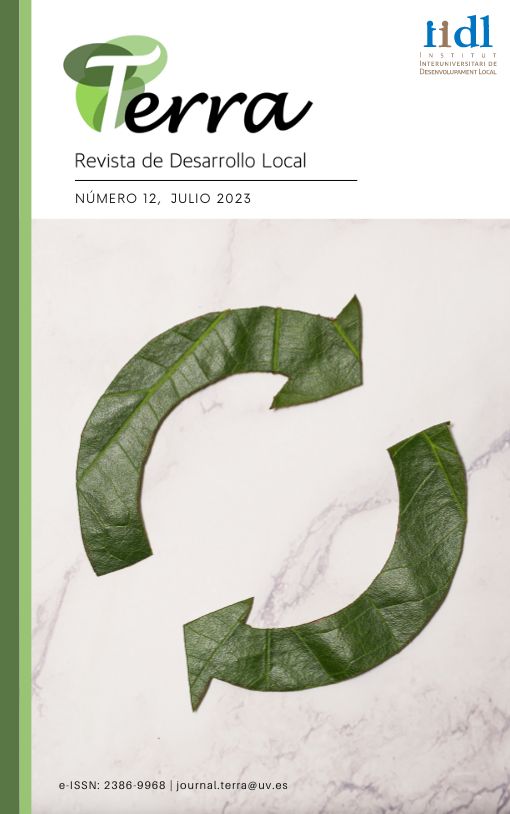Experiences on teaching and learning Atlas Ti V.22 software for spatial analysis and public safety
DOI:
https://doi.org/10.7203/terra.12.26519Keywords:
Qualitative Method, Analysis, Education, Social Phenomena, Social phenomena Abstract
Abstract
The purpose of this paper is to present some experiences and good practices regarding the teaching and learning processes of the specialised qualitative research software Atlas Ti V.22, in particular for territorial analysis and public safety, in a complex and sophisticated way. The main contribution lies in discussing the experiences of the undersigned in order to reveal some of the details and characteristics that prevail both in teaching and learning and their significance in scientific work. The findings lie in understanding the importance of specialised methodology in the detailed analysis of territorial contexts, public security, and that the use of Atlas Ti is a very useful tool in the study of different objects of study.
 Downloads
Downloads
 References
References
Bibliografía
Gibbs, Graham. (2012). El análisis de datos cualitativos en la Investigación cualitativa. Madrid: ediciones Morata.
Gialdino, I. V. D. (Coord.) 2019. Estrategias de investigación cualitativa. Volúmen II. Editorial Gedisa.
Glaser, B. y Strauss, A. (1967). The discovery of grounded theory: strategies for qualitative research. Chicago: Aldine.
Popper, K. y Eccles, Y. (1985). El yo y su cerebro. Barcelona: Editorial Labor.
Richards, T. y Richards, L. (1994). “Using computers in qualitative research”. Handbook of Qualitative Research. Londres: Sage.
San Martín Cantero, D. (2012). “Teorìa fundamentada y Atlas TI: Recursos metodológicos para la investigación educativa”. Revista electrónica de investigación educativa. 16(1), México. 104-122. Recuperado de http://redie.uabc.mx/vol16no1/contenido-sanmartin.html. (Consultado el 22 de marzo de 2023).
Strauss, A. y J. Corbin (2002). Bases de la investigación cualitativa. Técnicas y procedimientos para desarrollar la teoría fundamentada. Colombia: Editorial Universidad de Antioquia.
Tesch, R. (1990). Qualitative research. Analysis types and software tools. Basingstoke, Inglaterra: Falmer Press.
Varguillas, C. (2006). El capital emocional en las organizaciones: un constructo teórico para el siglo XXI. Venezuela: Universidad Pedagógica Experimental Libertador. Instituto Pedagógico de Maracay.
Downloads
Published
How to Cite
-
Abstract401
-
PDF (Español)242
Issue
Section
License
![]()
The texts published in this journal are (unless otherwise indicated) under a Creative Commons license: Attribution-NonCommercial-NoDerivativeWorks 4.0 International.
The authors give way to TERRA. Revista de Desarrollo Local of the Interuniversity Institute for Local Development, the reproduction rights in scientific journals of the published texts. They also allow the management team to disseminate the contents of the contributions received and published. However, TERRA explicitly declares that it does not claim full or complete copyright control.
The management of TERRA is therefore committed to a strong commitment to open content policies and tries to guarantee the maximum copyright to authors, so that they can reproduce their works in other publications as long as they mention in the new text that it has been previously published on TERRA. Revista de Desarrollo Local, attaching the complete citation to it.
The texts published in this journal are (unless otherwise indicated) under a Creative Commons license: Attribution-NonCommercial-NoDerivativeWorks 4.0 International. The full license is available under Creative Commons.



